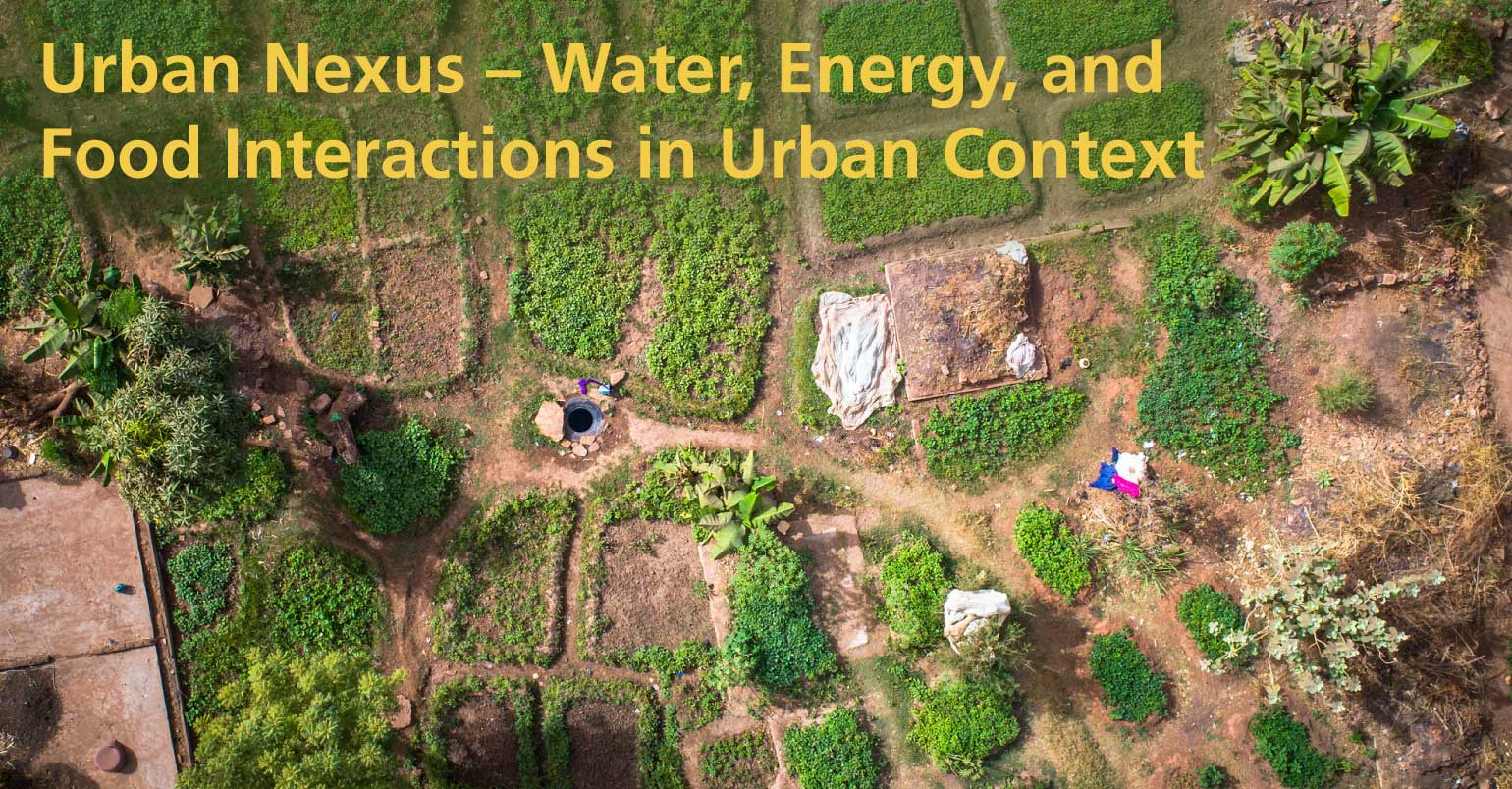Urban Nexus – Water, Energy, and Food Interactions in Urban Context
Topic outline
-

Welcome to this course on Urban Nexus – Water, Energy, and Food Interactions in Urban Context.

LEARNING OBJECTIVES
By the end of this course you will have :- Learned about urban settlements, their historical background and development, as well as their significance and challenges.
- Understood the concept of the threefold nexus among energy, water and food.
- Seen examples of energy related issues in an urban setup.
- Seen case studies of possible adaptations of the nexus concept in Niamey (Niger) and Bamako (Mali).

course outline
This Course consists of 5 Units and each unit is made of different interactive activities. The learning process is linear and each Unit is based on the previous one.1. Introductory Video: introduces the main concepts of the Unit.
2. Lesson: available through an interactive presentation. Each lesson lasts between 15 and 20 minutes and it is made of several interactive micro-sessions designed in a way that they can be taken in a quick and effective manner.
3. External resources: additional documents and publications are provided to students to further investigate the different topics.
-
Unit 1 - Urbanization and Energy, Water, and Food Systems
-
View Complete or pass the activity
-
Unit 2 - The Energy-Water-Food Nexus
-
Unit 3 - Energy Supply in Urban Contexts
-
Unit 4 - case study niamey
-
Unit 5 - case study Bamako
-
Final Remarks


